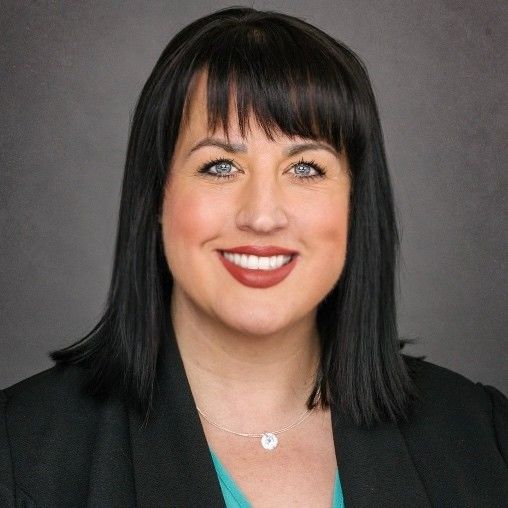Bridging the Gap: Exploring Forensic Evidence Self-Collection for Survivors of Sexualized Violence in Rural Communities
In many communities across Canada—particularly rural, remote, or underserved areas—survivors of sexual violence face significant barriers to accessing forensic examinations. These barriers may include geographic isolation, limited availability of Sexual Assault Nurse Examiners (SANEs) or specially trained medical professionals, long wait times, or personal and systemic mistrust of medical and legal institutions. As a result, many survivors are left without timely access to evidence collection services.
These delays can have serious consequences. Evidence such as DNA only remains on the body for a limited period of time, and everyday actions—like using the washroom, eating, drinking, or bathing—can quickly degrade or eliminate it. The sooner a sample is collected, the higher the likelihood of obtaining usable evidence.
To address similar gaps, several countries have explored self-collection as a way for survivors to preserve time-sensitive forensic evidence when full exams are unavailable. Models in Australia and the United Kingdom — where self-collection kits are often referred to as early evidence kits — allow survivors to collect swabs or clothing samples in supported settings, without replacing the option of a comprehensive forensic exam. These international examples highlight self-collection as a supplementary pathway, one that prevents the loss of crucial DNA evidence, and prioritizes survivor autonomy and safety.
What Is Self-Collection?
Self-collection refers to an approach to forensic evidence gathering that allows survivors to collect their own samples, using swabs, urine collection containers, and/or wipes, with the guidance and support of a trained staff member.
- Self-collection is intended to supplement, not replace, hospital-based forensic exams.
- In some protocols, the professional overseeing the self-collection is not required to be a medical professional.
- The process is intended to support agency and choice, while increasing the likelihood that evidence is preserved.
In situations where a full forensic exam is not available, the goal of self-collection is to offer an accessible way to preserve that time-sensitive evidence, rather than allowing it to be lost entirely. When this evidence isn’t collected in time, opportunities to support survivors’ choices—whether for medical follow-up, legal action, or future options—can disappear with it. Preserving evidence is key to maintaining critical pathways to care and justice.
The Canadian Context
Survivors of sexual violence in Canada continue to face major barriers when trying to access timely, safe services. Research led by McGill University found that many survivors are left without trauma-informed care or evidence collection options, especially in rural and remote regions, leaving justice and healing out of reach. Read the article here.
These gaps were also documented in an independent systemic review by Dr. Kim Stanton, who was tasked with examining how the BC legal system responds to sexual and intimate partner violence. In her final report, she confirmed that conventional service models are failing survivors and recommended exploring alternatives like self-collection to expand options for care and justice. You can read the report here.
She Matters’ national research, Does Geography Impact Access to Justice: Access to Forensic Evidence Collection in Rural and Remote Communities, further illuminated these inequities. Through the voices of survivors and rights holders across Northern Ontario, Northern British Columbia, and the Yukon, the research revealed how geography, systemic racism, and resource shortages intersect to restrict survivors’ access to support services and evidence collection. The findings highlight an urgent need for innovative, survivor-led solutions to bridge these critical gaps and ensure equitable access to justice across all regions of Canada. You can read the report here.
Why Is Self-Collection Being Considered?
Self-collection is being considered in Canada because current systems leave many survivors without timely access to forensic care:
- Rural, remote, and northern regions often lack SANEs entirely, requiring survivors to travel long distances—or even fly—to access hospital-based services.
- Even in urban centers, coverage is inconsistent. SANEs are concentrated in select hospitals and often unavailable outside regular hours. Survivors presenting at night, on weekends, or on holidays may face long waits, during which evidence degrades.
- These barriers mean that many survivors never have the opportunity to collect evidence, not because they are unwilling, but because the system is inaccessible.
Self-collection is being considered as a way to close this gap. While it cannot replace medical or psychosocial care, it may offer an immediate, trauma-informed supplement that reduces inequities, enhances safety, and ensures survivors are not left without options.
About Our Research
Currently, there is no published research examining the feasibility of forensic DNA self-collection in the Canadian context. With funding from Women and Gender Equality Canada (WAGE), this project begins to address that gap.
Our research will:
- Assess whether self-collection is feasible, appropriate, and culturally responsive in Canada.
- Examine how it could align with survivor-centered services, existing legal and medical systems, and Canada’s geographic realities.
- Engage survivors, healthcare providers, law enforcement, legal experts, forensics experts and community advocates to generate evidence that can inform future decision-making.
This project is grounded in the belief that survivors deserve accessible, empowering, and culturally safe options for preserving evidence and deciding how and when to report.
Meet The Research Team

Victoria Donkin (she/her)
Health Equity Researcher & Systems Change Collaborator
Victoria, a settler from South Korea situated in Tkaronto, holds a Master of Social Work with a specialization in Indigenous Trauma and Resiliency. She is deeply committed to addressing the enduring impacts of historical and intergenerational trauma. Her work bridges research, advocacy, and practice through participatory and community-based approaches, examining how policies and systems shape experiences of trauma and violence.
She brings a breadth of research experience that spans multiple intersecting areas of health and social justice. This includes applying a social determinants of health perspective to better understand the impact of homicide within Black communities; examining how community-driven, trauma-informed strategies can reduce gun violence in Canada and contributing to national suicide prevention efforts through the development and evaluation of 9-8-8, Canada’s crisis line.
Across these projects, Victoria has remained dedicated to co-creating knowledge with communities and advancing culturally responsive solutions that reimagine survivor-centred care and justice pathways across Turtle Island.

Jacqueline Villeneuve-Ahmed (she/her)
Project Steward & Research Coordinator
Jacqueline Villeneuve-Ahmed is a survivor advocate, mother of three, and founder of She Matters. A grateful settler from Atikimeksheng Anishnawbek Territory, she now lives with her husband and children on the traditional lands of the Erie, Neutral, Huron-Wendat, Haudenosaunee, and Mississaugas Peoples.
After surviving sexual assault and domestic violence in her early 20s, Jacqueline transformed her pain into purpose. For over a decade, she has worked alongside survivors of childhood and adult sexual violence, advocating for trauma-informed care pathways and survivor-led system reform.
Through She Matters, Jacqueline leads community-based initiatives that tackle the systemic barriers to care, with a particular focus on rural, remote, and underserved communities.
At the heart of her work is a belief in the power of survivor-led education, community care, and collective advocacy to reimagine systems that often fail those most in need.

Hannan Mohamud (she/her)
Legal Consultant
Hannan was named one of Alberta’s Top 30 Under 30 for founding the groundbreaking Edmonton PodCast Is this for real which investigated racial bias, media and police accountability. Most notably she has served on the Board of the Canadian Council of Muslim Women (CCMW)for 5 years, was elected and served a two-year term on the Board of Governors at the University of Ottawa, where she successfully brought forward motions and consultations addressing the use of racial slurs—including the N-word—in academic settings and university-affiliated publications. And was a previous long-serving and founding Advisory Member of Kids Help Phone’s Rise Up Strategy for Black Youth for over 5 years. Her written work and interviews have appeared in Refinery29, CBC Opinion, The Maple, LEAF Canada and Canadian Bar Association’s National Magazine among others. Her widely cited Refinery29 article, “Why Are Canadians Ignoring Hate Crimes Against Black Muslim Women?,” brought national attention to a series of targeted attacks against Black hijab-wearing women and the institutional failures that followed. Hannan has presented her research and policy work to the Prime Minister of Canada, the Governor General, and various United Nations diplomats.

Jayden Ode'imin (she/they)
Graphic Designer
Jayden Ode’imin (she/they) is a mixed Anishinaabe and Southeast Asian single mother, survivor, and passionate advocate. A daughter of a Missing and Murdered Indigenous Girls, Women, and 2-Spirit (MMIGW2S) survivor, Jayden brings both intergenerational and personal lived experience to her work and advocacy.
As a survivor in the child welfare system and continued intergenerational trauma, Jayden advocates for community-driven healing and Anishinaabe rooted approaches to justice.
Jayden began her career in event coordinating, graphic design and copywriting at her local Women’s Centre, and now works as a Graphic Designer in the non-profit sector, supporting community organizations with a focus on healing, justice, and visibility.
An advocate for women and human rights, Jayden devotes countless volunteer hours outside of her 9 to 5 to grassroots movements, survivor-led initiatives, and anti-war efforts, using her voice and design skills to uplift and empower others who may not have a voice.

Chloe Hunt (she/her)
Forensic DNA Self-Collection Consultant
Chloe Hunt is the Founder of Fourwords Solutions, a social enterprise dedicated to helping communities develop sustainable, community-led responses to sexualized violence. Since 2018, she has volunteered and worked in the gender-based violence sector, gaining an understanding of the systemic barriers survivors encounter. Before launching Fourwords in January 2024, Chloe spent two years studying the potential of self-collection as a method for preserving evidence after sexual assault. Through her work with Fourwords, she has had the privilege of learning from both international leaders in self-collection initiatives and local communities who continue to face barriers to resources and care following sexualized violence.

Andrea Macleod (she/her)
Forensics Consultant
Andrea has long been a passionate advocate for public service and victims of crime. She embarked on her law enforcement journey at the tender age of 19, ultimately ascending to the rank of Corporal and forensic specialist with esteemed organizations such as the Royal Canadian Mounted Police and the Ontario Special Investigations Unit. A decorated veteran, Andrea possesses a profound reservoir of knowledge and experience that enriches her community. Now retired from law enforcement, she dedicates herself to the field of education as a Professor of Forensic Science at Humber Polytechnic, where she mentors and inspires the next generation of forensic practitioners, sharing her extensive expertise and fostering a new wave of talent in the discipline.
Self-Collection for Sexual Assault Evidence: Common Misconceptions and Facts
Misconception 1: Self-collection means survivors take a kit home.
Misconception 2: Self-collection would lead to more false reports of sexual assault.
Misconception 3: Evidence collected by survivors will not be admissible in court.
Misconception 4: Survivors will be left on their own without professional support.
Misconception 5: Self-collection replaces hospital-based forensic exams.
We’re inviting survivors and rights holders — including those working in healthcare, law enforcement, law, First Nations leadership, and community-based organizations — to help shape the future of accessible, survivor-centered care pathways in Canada.
Through Bridging the Gap: Exploring Forensic DNA Self-Collection for Survivors of Sexualized Violence in Rural and Remote Communities, we are examining whether self-collection could offer a viable, survivor-centered option for evidence collection — reducing the barriers faced by those in Northern, rural, and remote regions.
Your voice and expertise are valued. By participating, you’ll help shape culturally safe and innovative approaches that strengthen access to justice and ensure survivors can seek care with dignity and choice.

